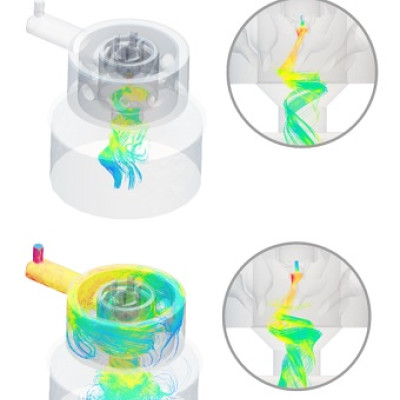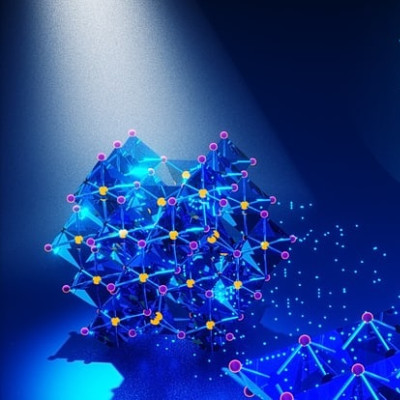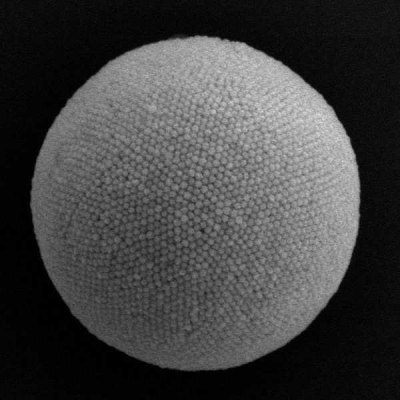Introducing Polypower: The Next Generation of Solar Technology
Solar technology is approaching a new future thanks to pioneering steps in nanotechnology. One such development is Nextgen Nano’s patented Polypower, which uses biopolymers in solar cells, and is part of the next generation of solar technology.
The nanotechnology solution is not only better for the planet due to the use of biopolymers in manufacturing, but it is also very inexpensive compared to other types of solar technology.
This combination of low resource and carbon cost with low economic cost does not get in the way of efficiency. Emerging organic photovoltaic technology such as Polypower is rapidly advancing in terms of conversion efficiency, with some research solar cell efficiencies being as high as 17.4%.
The solar, energy and nanotechnology industries will surely look to the biopolymer solar cell efficiencies (resources, economics and energy transfer) achieved by Nextgen Nano as they continually seek effective ways of producing the energy that society needs without destroying the planet.
Nextgen Nano’s Strategic Position in Nanotechnology
Nextgen Nano is a UK-based nanotechnology company with a core mission to decentralize energy distribution to produce “a deliberate positive environmental impact”.
The company is strategically positioned to exploit developments in nanotechnology and biopolymer research for the ongoing and vital progression of renewables such as solar technology.
This technology strategy is led by inventor and CTO Dr Franky So, with Chairman Matthew Stone providing commercialization expertise.
Dr Franky So is the current Walter and Ida Freeman Distinguished Professor at North Carolina State University’s Department of Materials Science and Engineering. He holds 80 patents, is editor-in-chief of Materials Science and Engineering Reports, and serves as an editor and lecturer with IEEE.
Matthew Stone founded Nextgen Nano and is the company’s chief financial backer. His extensive networks in research and industry, and specialist experience in bringing new technology to the market, ensure that Nextgen Nano’s impact can be felt in the energy industry and beyond.
As well as biopolymer-based solar cells with Polypower, Nextgen Nano have also developed a range of OLEDs (organic LEDs) called Newfusion. With both projects, Nextgen Nano pushes the envelope in biopolymers and organic materials, using cutting-edge nanotechnology to create innovative solutions to some of society’s most pressing problems.
Polypower: Next-Generation Solar Technology
Polypower combines advanced nanotechnology and biopolymer materials to produce an efficient solar cell. To create solar cells, Nextgen Nano uses biopolymers, which are organically “grown” materials with polymer properties such as a crystalline structure and covalent bonds in a pattern.
With an industry-leading nanotechnology-based manufacturing process, Nextgen Nano applies the biopolymer-based photovoltaic material in a thin layer to produce flexible and durable solar cells. Traditional silicon solar cells tend to be brittle, static, expensive and highly resource-intensive in the manufacturing process.
Polypower’s thin film application makes the product much more rugged and dynamic. Its use of organically grown biopolymers (a nanotechnology process referred to as bottom-up manufacturing) instead of finite and polluting resources such as silicon effectively minimizes damage to the environment during production.
This next-generation solar technology has been referred to as organic photovoltaics (OPV). To begin to see real cost benefits in the solar technology industry, OPV technology such as Polypower is one of the most promising steps towards carbon neutrality and widespread applicability for solar.
Biopolymers and Nanotechnology for Decentralizing Energy Supply
As well as producing next-generation solar technology with high energy conversion efficiency, low costs, and minimal use of polluting and rare resources, Polypower supports Nextgen Nano’s mission of decentralizing energy supply and putting power into the hands of the individual.
The company believes that future energy supply must move past the century-old model of large, central power generators sending consumers electricity over vast electric grids. There are significant efficiency, autonomy and cost gains to be made if energy can be produced on small scales and used “at source”.
This type of technology allows individual users to collect their own energy in a cost-effective and environmentally friendly way. Traditional solar cells are too large, brittle and static for this kind of purpose.
Due to thin film nanotechnology, Polypower can be applied to virtually any surface, including roofs and vehicles. Widespread adoption of this kind of energy supply would drastically reduce wastage in energy transfer and distribution.
Nanotechnology Response to the Climate Crisis
The next generation of solar technology being pioneered by Nextgen Nano is vital to the energy industry. It is essential that renewable energy solutions such as solar are cost and resource-effective to slow the dangerous release of carbon into the planet’s atmosphere. This is one necessary step to avoiding the climate crisis that the earth currently faces.
The Polypower project is an exciting development in OPVs and solar technology in general. The combination of biopolymers with nanotechnology processes will be noted around the world by any industry with interest in reducing energy costs (economic and environmental) and decentralizing networks of technology that require electric power to work.
Next Steps for Nextgen
Nextgen Nano will be seeking to bring Polypower to market and commercialize it with the benefit of their research-to-industry project experience.
When this type of next-generation solar technology is widely adopted, the future of decentralized energy that Nextgen Nano is working towards can be realized.
Read the original article on Azonano.







